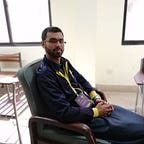Importance of Teamwork in Leadership
Leadership is breakdown into these four categories
· Teamwork
· Communication
· Critical Thinking
· Problem Solving
In this blog I focus on the importance of teamwork, a practical activity is added for your practice to understand the importance of teamwork.
Teamwork is the collaborative effort of a group to achieve a common goal or to complete a task in the most effective and efficient way. A team must include at least two or more members. Teamwork is present in any context where a group of people are working together to achieve a common goal.
Being a master of one or a jack-of-all-trades in today’s world does not bring about success if you are unable to work as part of a team. The importance of teamwork cannot be stressed enough!
However, it is hard to get a group of individuals to work together smoothly. Don’t you agree?
Look:
A leader that cannot work with a team, is a failure!
Leaders that develop great teams around them have two things that they do well:
- they have a lot of emotional intelligence and
can provide a clear vision for the team.
Benefits of Teamwork
“Two heads are better than one.” We have all heard the old adage encouraging teamwork, but what does working together really do for you? Salesmen thrive off healthy competition, but sometimes the use of teamwork in the workplace is a better answer for winning sales. Here are six ways that teamwork benefits you in the workplace.
Teamwork also maximizes shared knowledge in the workplace and helps you learn new skills you can use for the rest of your career
1. Fosters Creativity and Learning
2. Builds Trust
3. Teaches Conflict Resolution Skills
4. Promotes a Wider Sense of Ownership
5. Encourages Healthy Risk-Taking
6. Blends Complementary Strengths
The elements crucial to building a productive team include:
Communication:
Effective communication is the most important part of teamwork and involves consistently updating each person and never assuming that everyone has the same information. Being a good communicator also means being a good listener. By listening to your colleagues, you show them respect, which is an essential trust-building method.
2. Delegation:
Teams that work well together understand the strengths and weaknesses of each team member. One of the benefits of strong teamwork is that team leaders and members are adept at identifying all aspects of a project and allocating tasks to the most appropriate team members.
3. Efficiency:
A strong and cohesive team develops systems that allow them to collaborate efficiently to complete tasks in a timely manner. Through working together, colleagues will be aware of their own capabilities and the capabilities of the group in general and can organize the workload accordingly.
4. Ideas:
When a team works well together, colleagues feel more comfortable offering suggestions and ideas. A respectful and trusting team environment will not only enable colleagues to think more creatively but will lead to more productive and collaborative brainstorming sessions.
How to improve your teamwork
- Get honest feedback. It can be difficult to identify your own areas of improvement. Finding a trusted friend, colleague or mentor that can offer you honest feedback about your teamwork strengths and weaknesses can help you improve them.
2. Set personal goals. Using both your own observations and feedback from others to form achievable, relevant and time-constrained goals can help you improve one teamwork skill at a time. Using the SMART goal framework is an easy way to set appropriate goals for your career.
3. Practice. It takes time and practice to see improvements in your skillset. Pay close attention to your teamwork interactions throughout the day both in and out of work. Take mindful steps to practice the specific qualities you are trying to build.
4. Mimic others with strong teamwork skills. When you see examples of great teamwork, take note and identify why the interaction stood out to you. Apply those qualities in your own interactions when working with others
TRY it by yourself:
It is a paper tower task, if you make it individually it will take one hour or more to build this tower and stand it without support. If you make a team of 3–4 members and distribute work among each other and try to do the same task it will take less than 15 mints to do this task more effectively. Try it by yourself make a good team and practice teamwork skills. Please share your experience in the comment section.
If you are perfect in teamwork it doesn’t mean you’re a good leader, for a good leader you must have effective communication, critical thinking, and problem-solving all the four milestones collectively.
Read about leadership here.
